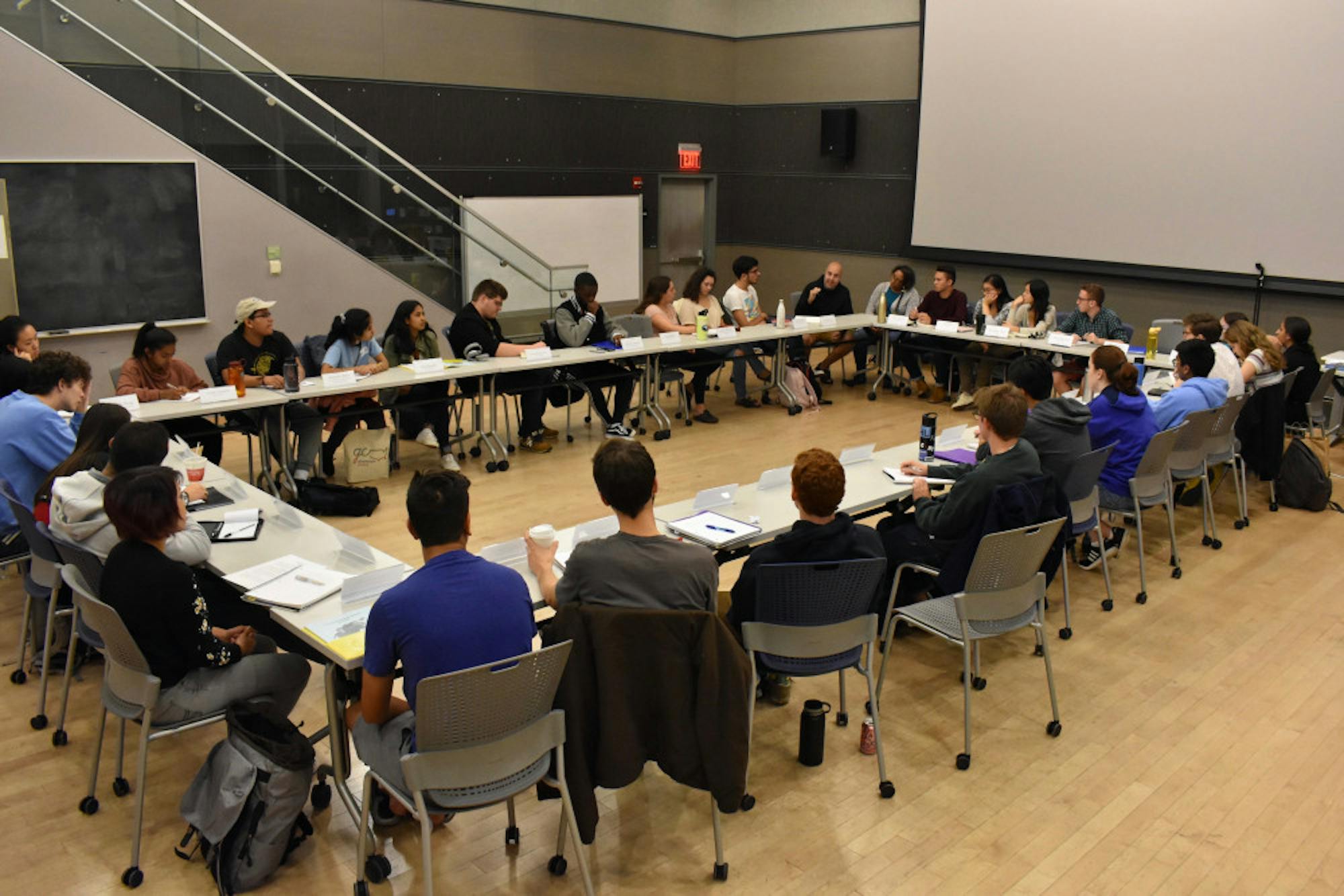After a November 2020exit survey conducted by the Tufts Community Union Senate found a lack of academic engagement and social isolation among the student body, Claire Bolash, TCU Senator for the Class of 2024, proposed a resolution that called for the implementation of a mandatory in-person component for every class in the Schools of Arts and Sciences and Engineering. It passed TCU Senate on March 14, with sixteen senators voting in favor of the resolution, eight opposing it and one senator abstaining.
"I sit on the Education Committee, and so at our first meeting, I sort of brought up what the academics section of the exit report said, and brought up the concept of having this recommendation implemented as a resolution," Bolash, a first-year, said.
The exit survey asked students to reflect on the fall 2020 semester. A substantial number of students rated their time at Tufts last semester very poorly, partially due to the prevalence of asynchronous and virtual classes.
On a scale of 0–10, 70.49% of respondents rated their fall experience a six or lower and 23.34% rated it a three or lower. In the survey, 88.64% of respondents said that their interactions with other classmates decreased significantly because of COVID-19, and 67.61% said their virtual class components were not on par with what in-person classes could offer.
The intent of Bolash's resolution is to increase interactions between classmates and create a more personal relationship between students and professors. If students are given the option to stay remote in the fall 2021 semester, the mandatory component wouldn't apply.
"I do still think it's super important that all these courses are accessible virtually as well, and that they're still able to be taken by students who aren't on campus because of these issues or health concerns," Bolash said.
Iyra Chandra, chair of the TCU Senate Education Committee, helped Bolash solidify her ideas into the resolution format and write the resolution, along with the rest of the Education Committee.
Chandra, a junior, supported Bolash's resolution.
"It stems from students calling for more engagement with their learning, professors, and the Tufts community," Chandra wrote in an email to the Daily. "This will be a sign to faculty and admin that there needs to be more done to physically engage members of the student body. This also should be a wake up call that online learning and zoom classes are not sufficient and that there is a specific importance to having in person academic opportunities."
Chandra also expressed her reaction to the results of the exit survey.
“I think it is disheartening to see how many students are having a difficult time mental health wise and with online learning, but it was not something that surprised me," Chandra said.
Bolash explained how she hopes this resolution will positively impact the student population next semester.
“I’m hoping that there will be these institutionally-offered opportunities next semester for students who are on campus to be able to talk to each other about the course material, because it’s so hard to take a course [where you don’t know anyone], and I feel like you don’t learn as much if you’re not able to interact with people and hear other people’s perspectives on it," Bolash said.
Now that the resolution has passed TCU Senate, the responsibility lies in the hands of the administration to implement it.
Patrick Collins, executive director of media relations, said that the Tufts administration will be considering multiple factors in deciding its next steps.
“We appreciate and will carefully review the feedback from the exit survey, along with any other input from our students — including through the TCU resolution," Collins wrote in an email to the Daily.
Bolash recognized that it may not be possible for her resolution to be implemented, considering it will potentially require additional work for professors who may not be planning to feature in-person components.
Collins said that the administration adhered to government regulations and received guidance from medical experts when planning for the 2020–21 school year, and that they will continue to consider these factors as they plan for the fall semester.
"We recognize many of our faculty and students are eager to return to in-person learning and we hope conditions in the fall will allow us to do so, as access to vaccines increases and the number of infections declines," Collins said. "We will of course continue to update our community on university plans as they develop over the spring and summer."






